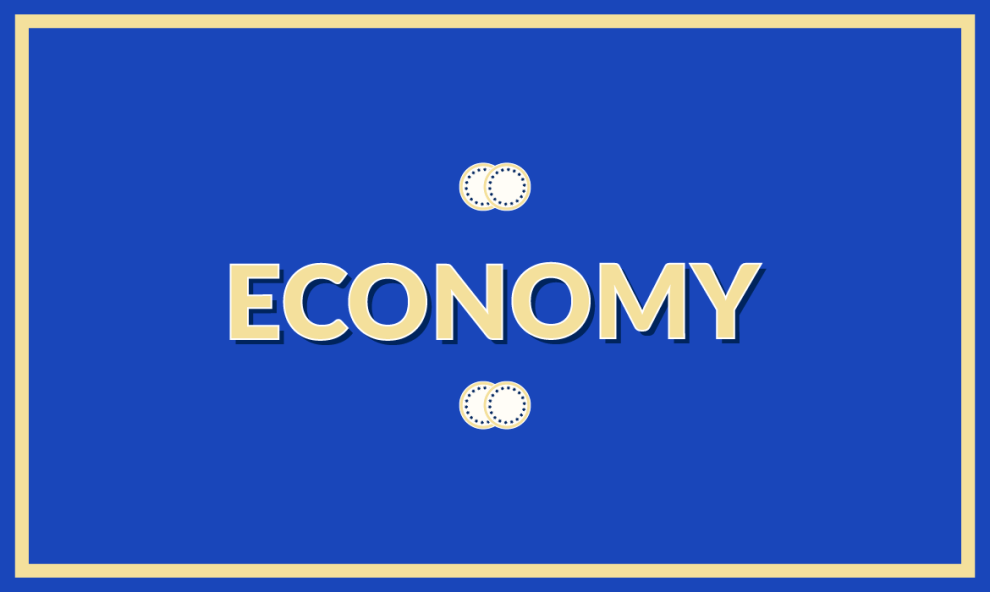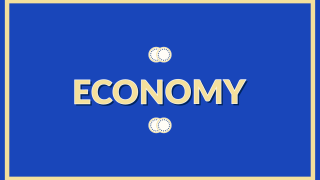A Canadian university professor was famous for never failing anyone in his classes. One day, some of his students argued in a debate that the policies of the government would eliminate poverty and would become a great equalizing factor of the society. Skeptical, the professor proposed an experiment to them: from that moment on, he would average the grades of the entire class group and no one would get an A (a 10 in Mexico) and no one would flunk the course. The first exam came and went, the professor averaged the scores and everyone got a B. Those who had studied hard were upset, while those who had studied little were content. Then came the second exam: the students who had studied hard for the first exam studied less and those who had studied less for the first one didn’t study at all for the second. The average grade was D. In the third exam the average was F, representing a failing grade. The experiment illustrated a facet of human nature with which politicians worldwide in general have not yet come to terms: a result cannot be legislated.
Politicians can legislate a set of rules (laws) and regulations that, they trust, will produce the desired results, but they can never determine the way that millions of citizens will react in terms of their preferences or objectives. Neither prosperity nor poverty can be legislated; neither can a healthy financial system nor can less traffic in a city, nor can wealth be multiplied when it is divided, be legislated. Human nature is not inert: individuals perennially respond in favor of survival despite politicians’ bad ideas and to preserve what’s important to them: they do things that even the most inured of politicians could not predict or ever even dream of their doing.
In past decades, U.S. politicians, employing fiscal mechanisms, obliged banks to make mortgage loans in massive fashion to low-income persons who had no possibility of paying these back. Thus was born the crisis of recent years: bold as brass, but deliberately in the knowledge that there was no possibility of utilizing traditional mortgage loans for this segment of the population, the bankers thought up a type of credit, the so-called “subprime loan”, especially designed for individuals with low incomes: the monthly payment for the initial years was very low and easy to pay, but the payment rose suddenly some time afterward. Millions of persons acquired homes in this manner that later, when the payment went up, these ended up being abandoned. All the while, the bankers had converted these credits into values that were resold throughout the world. Eventually the bubble burst with the consequences that we all know.
The lesson seems very evident to me: when politicians utilize subsidies, taxes, preferences or protection for the benefit of certain social groups or to advance their own agendas they end up distorting the economic rationality embodied by everyone in their being –human nature- and producing results that are not always desirable. The point is, in their actions, politicians create incentives that they not always (or nearly never) thoroughly understand.
In Mexico City, in the eighties, the government had the brilliant idea of limiting automobile use through the program known as “a day without driving”. The program was announced over a three-month period and exerted a notable effect in some weeks, because one fifth of vehicles disappeared from the streets. However, at the end of the trimester, the local government made the program permanent, with which it changed the scheme of incentives: the population had responded precisely as the government had wanted while the program remained a temporary one because everyone understood the consequences in terms of the environmental effect of automobiles. However, once the program was made permanent, the population responded in logical fashion: buying an additional vehicle. The effect on contamination was fatal not only because the original number of vehicles returned into circulation, but also because the majority of the cars added to the mix were clunkers, thus they contaminated more. The result was that the number of vehicles and the contamination increased.
The matter didn’t end there. Between the end of the eighties and the present, everything possible has been done to increase the number of vehicles in circulation: second-storey traffic arteries above the first have been constructed, real estate projects are ever more off in the distance, the price of new cars diminishes in real terms, public transportation has not grown significantly and all gasoline types are highly subsidized. That is, every imaginable type of incentive has been created for the population to be able to acquire more automobiles. What is the government’s response? You can readily imagine it: it wants to go back to limiting the number of vehicles in circulation, this time coercively. It’s not difficult to anticipate the outcome, except if one is the politician charged with making the decision.
The financial legislation that the government has proposed follows the same line. Its objective is praiseworthy: it wants to increase credit as a percentage of the GDP and is attempting to create incentives for this to happen. The legislature proposes two mechanisms, one positive and the other negative. The positive one, which takes as its model the Brazilian Development Bank (BNDES), consists of endowing national development banks with mechanisms for these to support the productive plant. Nothing wrong with that, except that the Brazilian example itself has poignantly brought to light the risks of lending to companies that are not financially viable, because if they were, the commercial banks would already be lending to them. On the negative side, the bill proposes impeding commercial banks from buying up government bonds with the resources that they are not employing for loans. The objective is to provide incentives for banks to increase extending credit with these resources. As with the Mexico City traffic it is easy to predict that, before extending risky credit, banks will seek other things in which to position their resources, such as in real estate or in instruments that typically creative minds will develop to preserve their own interests. Again, a result cannot be legislated.
“Public policy”, wrote Thomas Sowell, “must be understood by the actual structure of incentives that it creates rather than by the rhetoric of hope of the makers of the policy”. The Mexican is as intelligent and competent as any other human. Betting on his stupidity or on his disposition to submit to the desires of bureaucrats does no more than cast doubt on the character of the bettor.






Comments